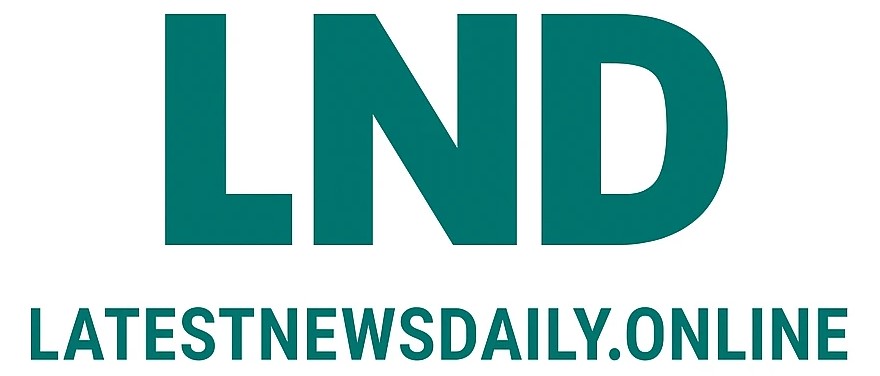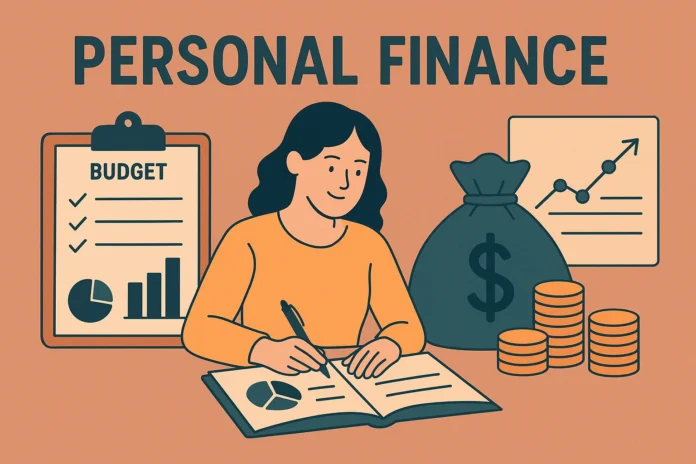Mastering Personal Finance: Budgeting, Investing, and Planning for a Better Future
Personal finance isn’t about being rich. It’s about having enough—enough to feel secure, to sleep peacefully at night, and to build the kind of future you want.
Whether you’re fresh out of college, earning your first paycheck, or someone trying to break free from the cycle of living paycheck to paycheck, this guide is for you. We’ll walk through the three core pillars of financial well-being—Budgeting, Investing, and Financial Planning—in a way that feels real, doable, and grounded in everyday life.
Step 1: Budgeting – The Foundation of Financial Health
Budgeting isn’t about restriction—it’s about clarity. Think of it like using Google Maps before a road trip. You need to know where you’re starting from and where you’re headed.
🔹 Why Budgeting Matters
Without a budget:
- You’ll likely overspend on things you don’t need.
- You may underestimate your debt or forget about annual expenses.
- Saving and investing become afterthoughts.
With a budget:
- Every rupee/dollar has a job.
- You know your priorities.
- You start moving with intention.
🔹 The 50/30/20 Rule (With a Twist)
A classic starting point:
- 50% for essentials (rent, groceries, utilities)
- 30% for wants (dining out, hobbies, Netflix)
- 20% for savings & debt repayment
Pro Tip: If you’re living in a high-cost city or repaying debt aggressively, modify the percentages. For example, try 60/20/20 or 70/10/20. The rule is flexible—it’s your money, your rules.
🔹 Tools That Help You Stick to a Budget
- Apps: Mint, YNAB (You Need A Budget), Goodbudget
- Manual: Google Sheets or Notion tracker
- Envelope System: Works wonders for impulse spenders (especially cash-based)
Step 2: Investing – Making Your Money Work for You
Here’s a hard truth: Saving money isn’t enough anymore. With inflation eating into your bank balance year after year, investing is what truly grows your wealth.
🔹 Start Small, Start Now
You don’t need ₹1 lakh or $10,000 to invest. Even ₹500 or $10 a week can make a difference over time with compounding interest.
“The best time to invest was yesterday. The second-best time is today.”
🔹 Types of Investments for Beginners
Let’s break this down into simple buckets:
1. Stock Market
- Directly buy shares of companies.
- High returns, higher risk.
- Use platforms like Zerodha, Robinhood, or Groww.
- Don’t invest in what you don’t understand. Start with index funds.
2. Mutual Funds
- Professionals manage your money.
- Ideal for passive investors.
- SIPs (Systematic Investment Plans) let you invest monthly.
3. Bonds & FDs
- Lower risk, lower returns.
- Good for conservative investors or short-term goals.
4. REITs or Real Estate
- Want exposure to real estate without buying property? Real Estate Investment Trusts are the modern way to invest in property markets.
5. Gold & Crypto
- Good for diversification.
- Don’t go all-in—treat them as spice, not the main dish.
🔹 Key Investing Tips:
- Always diversify (don’t put all eggs in one basket).
- Invest consistently, not occasionally.
- Stay invested long-term to reap real benefits.
- Never invest based on tips or social media hype.
Step 3: Financial Planning – Your GPS for the Long Journey
If budgeting is the daily grind and investing is the growth engine, financial planning is the master blueprint. It’s about aligning your money with your life goals.
🔹 What Does a Financial Plan Include?
- 1. Emergency Fund
- 3 to 6 months of expenses
- Keep in a liquid savings account or low-risk debt fund
- 2. Insurance
- Life insurance: If someone depends on your income
- Health insurance: Even if your employer provides one, consider a personal top-up
- 3. Retirement Planning
- It’s never “too early” to plan for retirement
- Use retirement accounts (like EPF, PPF, 401k, Roth IRA)
- 4. Goal-Based Savings
- Marriage, travel, home, kids’ education—assign a money goal to each
- Use separate savings or investment buckets
- 5. Debt Management
- Tackle high-interest debt (like credit cards) aggressively
- Consider refinancing options or snowball/avalanche methods
Human Habits That Make the Difference
Your mindset and habits can make or break your personal finance journey.
🔹 Pay Yourself First
The moment your salary hits your account, set aside a portion for savings/investment before spending anything else.
🔹 Automate Everything
From SIPs to rent payments to credit card dues—automation ensures consistency.
🔹 Track Net Worth Quarterly
Tracking your income is good. But tracking your net worth (assets – liabilities) shows your true progress.
🔹 Don’t Compare. Customize.
Your cousin bought a luxury car? Great. But maybe you’re saving for a solo trip or want to retire early. Define YOUR version of financial success.
Money Conversations Matter
Talk to your partner, parents, or kids about money. Don’t treat finances as a taboo. Share your budget goals. Plan together. Teach children the value of saving early on.
Financial Freedom: The Endgame
Financial freedom doesn’t mean quitting your job and sipping mocktails on a beach (though that’s cool too). It means having choices.
- The choice to say no to toxic jobs.
- The choice to take a sabbatical.
- The choice to care for aging parents without financial panic.
It’s not about how much you earn—it’s about how well you manage what you earn.
Final Thoughts
Your journey to financial wellness isn’t a one-time decision—it’s a lifestyle. And like any lifestyle change, it starts with small, intentional steps. You don’t have to be perfect. You just have to be consistent.
So, the next time you think about money, don’t stress. Plan it. Track it. Grow it. Own it.
Frequently Asked Questions (FAQs)
Absolutely. Budgeting isn’t about how much you earn, but how well you manage whatever you do earn. It gives you control and clarity.
As soon as you start earning! The earlier you begin, the more time compounding can work its magic.
Focus on paying off high-interest debt first (like credit cards). Then you can invest alongside managing low-interest debt.
Yes, many people do. But for complex portfolios, tax-saving, or retirement plans, a trusted advisor can add value.




